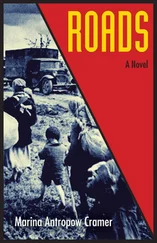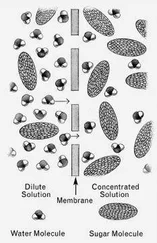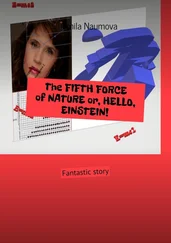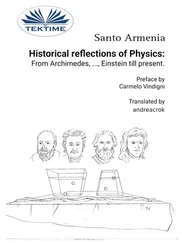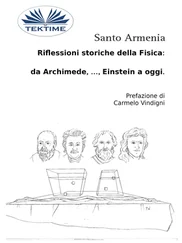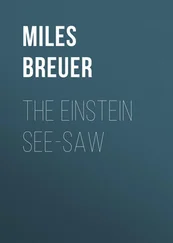The pessimistic argument that the speaker was presenting was that, in his esteemed judgment, the chain of new discoveries was indeed about to break, the series was about to terminate. With the wisdom of hindsight, one could see that the great discoveries of particle physics had all been consequences of the fundamental underlying structures of matter, the quarks and leptons and the “carrier” particles that mediated the fundamental forces. The set of these particles now seemed almost complete. All the expected quarks and leptons had been found, culminating with the discovery of the top quark at Fermilab in 1994-95. The Higgs particle, presently being sought in different ways by several experimental groups at the SSC, might be the last piece in the cosmic puzzle. The next generation of particles might lie vastly higher in energy, at the Planck scale, the mass scale set by the smallest possible black holes, the domain where gravity and the three other forces of nature must unite into a single force.
If that was so, the SSC was the end of the line for accelerator-based particle physics. There was little point in building an even more powerful machine. From the SSC at the edge of the desert a vast energy wasteland stretched from the Higgs to the Planck scale, a great energy region where nothing of interest would happen, where no new particles would be discovered. Where the dance of theory with experiment to produce new knowledge was about to come to an end.
The QCD Standard Model worked too well, the speaker declared. There would be few surprises in the energy region that the SSC had opened to exploration. Experimental particle physics was reaching its logical conclusion. He advised the younger physicists in the audience to begin preparing for an alternative career.
George thought of the violet track with its twenty-nine clusters of jets, and he laughed. Others near him glanced curiously in his direction. He knew something that the speaker had come to doubt. The universe is indeed a far stranger place than is dreamed of in our philosophies.
George’s cellphone made a chirp. It would have to be of some importance, he thought, because he had set the threshold at a fairly high urgency level. As unobtrusively as he could, he squeezed down the aisle past several sets of knees, shrugged at the speaker in apology, and walked up the aisle to the rear door.
When he was in a quiet place, he pressed the receiver button of the device. “George,” said Wolfgang, “I wanted you to know that there was a cancellation in the superconducting metallurgy group’s schedule. We have time on their X-ray fluorescence microprobe on Monday morning at 7 a.m. Is that okay with you? If it is, I will prepare an insert now, so it will be ready to go on Monday.”
“Monday morning is fine,” said George. “I could even have some results in time for the group meeting at 10 a.m. I’m scheduled to report on our progress then. I just hope this works, Wolfgang. If those speckles on the pixel chip aren’t the problem, we’ll have to go back to square zero.”
“Just one step at a time,” said Wolfgang, “as they used to tell us in the East German Army.”
ALICE AND GEORGE RETURNED TO THEIR TABLE AT P. J.’s, rejoining Roger and Susan. Alice seemed happy and a bit out of breath. George was glad that his initial performance as a dancer to country and western music had been at least adequate.
He had never been to P. J.’s before, although he’d heard about it from the students. He was glad that their table was well away from the jukebox, permitting some conversation. George looked at Roger. He was looking pretty good, considering. “How’re you doing, old friend?” he asked.
“Fine,” Roger said. “It was a bit disconcerting to have a seizure, particularly when I’d never had one before, but there seem to be no lasting effects. I slept eight hours last night, woke up feeling fine, and I’ve felt unusually relaxed all day.”
“Yes, he’s fine,” said Susan, apparently speaking with some authority.
“So you think you know where your Snark-thing stopped?” Roger asked. “That’s exciting.”
“Maybe,” said George. “We tracked it to a particular lead-glass scintillation counter. The slow-control archives show that about the time of the Snark event, that unit started drawing excessive photomultiplier string current and has been doing so ever since. It could be that the Snark is embedded in it and is making it scintillate continuously. It could also be that the Snark or something else caused the unit to develop a light leak.
“In any case, the unit is drawing excess current and needs to be replaced. I’ll do that as soon as there’s a shutdown. That will be when the next maintenance cycle starts and the circulating beam in the ring is dumped, maybe in a week; Then we’ll see.”
Roger nodded sagely and patted George on the shoulder. “Retain your faith, my son,” he said. “Everyone must believe in something. In my own case, I believe that I’m ready for another Lone Star. Anyone else want one?”
Alice and Susan both nodded.
“Sure,” said George. “Western dancing promotes a powerful thirst.”
Roger disappeared through the crowd in the direction of the bar.
“Well, look who’s here,” said a voice.
George turned to see Belinda walking toward them, accompanied by a man who looked familiar.
Belinda was wearing a flowery low-cut dress, her astrological jewelry setting off her cleavage. She smiled at George. “Hello, Dr. Griffin. I’d like you to meet my friend Whitey,” she said. “How are you, Miss Lang? We spotted you folks over here and came by to say hello.”
“George, Whitey is my next-door neighbor,” Alice said.
George shook hands with Whitey and introduced Susan. “It’s a small world. And I’m George, not ‘Dr. Griffin,’” he said. He gestured to a pair of chairs at the table. “Why don’t you two join us?” He recognized Whitey now. The man had a reputation as an electrician who was smarter than he looked and could deal with the tricky problems.
“Surely would like that,” said Whitey, and they sat down. Conversation was becoming difficult as the music increased in volume. Finally Whitey turned and said, “Alice, I was wonderin’ if you would do me the honor of a dance.”
“Of course,” said Alice. They walked toward the dance floor just as Roger was returning with four longneck bottles of Lone Star. George introduced him to Belinda and explained that Roger was a new arrival from CERN.
“How do you like Texas, Roger?” Belinda asked. Roger looked around the room. “I’m liking it more and more,” he said. “It has its own unique flavor, and I seem to be acquiring the taste. You have good people here.”
Belinda nodded. “Did you know,” she asked, “that a lot of famous Americans originally came from Texas? Like George Washington?”
George saw that a tall Texas tale was coming and smiled.
“George Washington came from Texas?” asked Roger, looking skeptical. “Are you sure?”
“Oh yes,” said Belinda, smiling. “The story goes that little George got a small hatchet for his eighth birthday, and he went outside the ranch house and cut down his father’s favorite mesquite bush with it. When Father Washington came home from rounding up his herd, he noticed that his mesquite bush had been cut down, and he became very angry. ‘Who in the Hea-yul cut down mah mesquite bush?’ he demanded. George walked bravely up to his father and said, ‘Father, I cannot tell a lie. I did it with my little hatchet.’ Father Washington scowled down at his son for a long time. Finally he came to a decision. ‘George,’ he said, ‘you go on in and pack up your saddlebags. Tell your ma we’re movin’ to Virginia. You’re sure as Hea-yul never gonna make it in Texas!’”
Читать дальше

